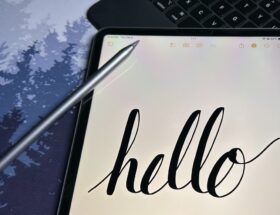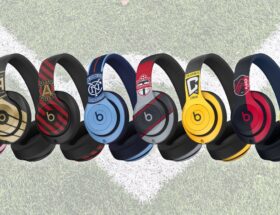Apple wants homes be filled with Apple devices talking to each other as well as listening. (Source: Apple)
 1 Facebook x.com Reddit
1 Facebook x.com Reddit
If you're reading this, you probably have a lot of Apple devices in your home. Apple is working on technology that will allow everyone to listen to your home and tell you at the table when something is happening in another room.
If your home isn't already full of Apple devices, Apple would really like to change that — and he is looking for a way to make it very attractive. Apple has researched how any of your devices can detect and recognize any other — and what those other devices hear.
So if your baby is crying in the bedroom while you're preparing formula in the kitchen, maybe the HomePod mini on your bedside table can send an alert to your Apple Watch. Or maybe the iPad in your kitchen can recognize that your kettle is boiling and send a signal to your iPhone to say, “Come here and make some tea.”
The recently issued patent, “Home Sound Localization and Identification,” builds on the existing ability of Apple devices to recognize the sound of a smoke alarm. It is based on sound recognition and adds location information so that any device can tell another device where the sound is coming from.
Location may not seem particularly useful since you have to know where your baby is and remember where you put the kettle on a few minutes ago. But such a system could, for example, recognize the front doorbell and send an alert to a hearing-impaired person.
This may work simply because, as Apple says in its patent, “the affordability of these devices has allowed them to become ubiquitous in our lives and homes.” Apple says devices “can collect and access information about their surroundings and environment.”
However, it also states that “current devices may not be able to use this processing power and information to solve many of the problems and issues that a user may encounter in everyday life.” Consequently, Apple argues that “there is a need to harness the power and ubiquity of electronic devices in new ways to solve hitherto unsolved everyday problems.”
When a sound meets certain characteristics, such as type or volume, the device can act. “When in use, one or more devices can detect sound and transmit one or more signals corresponding to the detected sound to the processor,” Apple says.
“The processor can be configured to determine the physical location of the sound source, at least in part, based on received signals,” he continues, “as well as additional information that may be collected or received by the system, such as location users or objects in space, time of day and/or calendar events.”
If, for example, you have a party scheduled on your calendar, devices can be set to only recognize louder sounds.
Excerpt from the patent showing one example of a device that notifies the user of sound in another room
All this means is that your Apple devices will be constantly listening, and, as in Every recent Apple patent contains a reference to the need for privacy in the text. Given that they are listening, devices can only listen to specific sounds such as alarms, a kettle boiling, etc., and ignore general background noises.
But, unusually, the patent makes it possible to deliver “targeted content” using devices. It is suggested that this could include advertising, but the patent instead focuses on health benefits.
“For example, health and fitness data can be used to provide information about a user's overall health or can be used as positive feedback for people using technology to achieve health goals,” it says German “This disclosure assumes that the entities responsible for collecting, analyzing, disclosing, transmitting, storing or otherwise using such personal information will comply with generally accepted privacy policies and/or privacy practices.”
Where the patent is unclear is how this health and fitness information fits with the rest of the idea. There is speculation that this simply means providing “positive feedback to people using technology to achieve health goals.”
Perhaps it's because at certain times of the day some or all of your devices disturb you. Or perhaps, if your Apple TV 4K doesn't hear you swearing enough while playing Apple Fitness+, it'll let your partner know you're messing around.
This patent is owned by Paul G. Puskaric and Fiona P. O'Leary. Puskaric previously worked on patents related to so-called focused listening.










